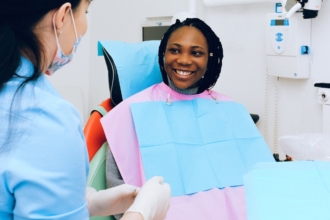In healthcare, informed consent isn’t optional. The U.S. Centers for Medicare and Medicaid Services require it. The Joint Commission, which accredits and certifies hospitals, does as well. The American Medical Association’s Code of Medical Ethics says that “informed consent to medical treatment is fundamental in both ethics and law.” Decades of case law show that the U.S. courts are firmly in favor of educating patients — and getting their permission — before proceeding with most treatments.
But none of these authorities tells us who must obtain the patient’s signature on an informed consent form. Is it the doctor? The nurse? Receptionists?
Physicians lead the conversation that’s the core of informed consent, but they’re also busy. Most of them would rather talk to the patient than collect forms. Front desk staff can handle the paperwork, but they’ll have to call in the medical team to answer the patient’s questions. It’s a conundrum.
We asked a handful of medical professionals to tell us who is responsible for obtaining informed consent — not just explaining the details of the procedure but making sure the patient signs the paperwork. Here’s what they said.
1. Informed consent in oral surgery: The physician assistant
Mughda Patwardhan, DDS, MD, is an oral maxillofacial surgeon and a partner at 7×7 Dental Implant and Oral Surgery Specialists in San Francisco. In her office, physician assistants are in charge of physically collecting signatures on informed consent documents, but Patwardhan handles the educating.
“Prior to any signatures, I have a discussion with the patient,” Patwardhan says. “We talk about possible treatments, and I describe why I believe a treatment should be done and what risks are inherent for this particular procedure. I also present alternative treatments, if they’re available.”
These are key points in a proper informed consent, and they are details the patient will also find on the written agreement. But forms alone aren’t enough to truly inform a patient about a possible therapy. The real work of informed consent is done by discussion, Patwardhan insists.
“These consent forms are a couple pages long with tiny writing,” she says. “A lot of patients will just gloss over it. It’s really up to the provider to verbally delineate what is involved.”
2. Informed consent in medical research: The principal investigator’s team
The human subjects of medical studies must also provide informed consent. When those studies are part of the FDA approval process for a new drug or medical device, a lot of organizations get involved.
There’s the sponsor — the company that wants to sell a new medical treatment. There’s the clinical research organization, which actually conducts the study. And there’s the principal investigator, a physician with a specialty in whatever condition the new product is supposed to treat.
It’s this last participant who’s responsible for getting signed informed consent documents from test subjects. But the principal investigator can deputize someone in their office to oversee the signature itself.
“If they don’t get informed consent, the principal investigator is one of the individuals who will be legally liable,” says Marie Buharin, regulatory affairs expert in medical devices and founder of Modernesse. “But the actual individuals obtaining the signature are typically administrators, nurses, etc.”
3. Informed consent in a cosmetic surgery clinic: The nurse
The Harley Street Skin Clinic in London caters to British celebrities (though not exclusively). You may remember it from the 2013 documentary TV series Stitch Me, Lift Me, Tuck Me. But it’s also a real-life medical facility, which means its surgeons practice informed consent with all their patients, famous or not.
Lesley Reynolds is a cofounder of the Harley Street Skin Clinic, and in her experience, a highly trained medical professional handles informed consent — but not necessarily a doctor. “The physician or another licensed independent practitioner, such as a nurse practitioner or a physician assistant, provides the client with complete information about the treatment or procedure,” Reynolds says.
At the same time, nurses are in charge of making sure signatures are legitimate. “The nurse is liable and accountable for confirming that, in their presence, the patient or legal representative has signed the consent form and that the patient or legal representative is of lawful age and qualified to give consent,” Reynolds says. “We must affirm that the patient has ample information to make a rational judgment.”
Who’s responsible for obtaining informed consent? Ultimately, it’s always the physician
Informed consent doesn’t just take place on paper or via an online form, convenient as they are. It’s a continuing process that ensures patients retain control of their own healthcare. And because physicians are in charge of a patient’s care, they’re the ones who are ultimately responsible for making sure patients understand the risks, benefits, and alternatives to a given treatment.
Someone else can collect the paperwork, but doctors are the only ones who can really ensure informed consent. To learn more about informed consent in healthcare and beyond, see our free guide here.













Send Comment: